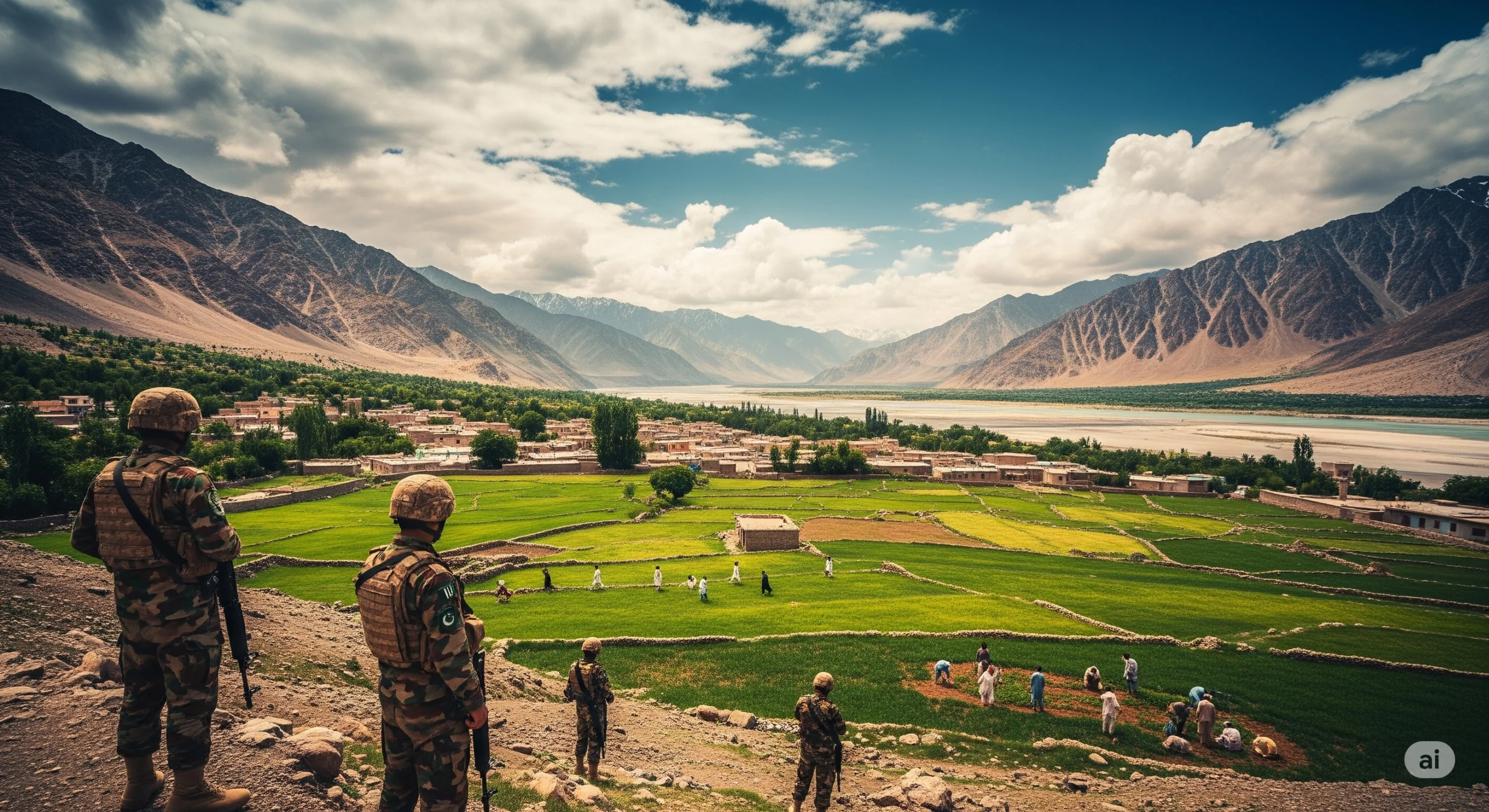Open War Against Terrorism

Pakistan has been facing one of the most burning and ongoing issues which is terrorism. When the country is passing through the volatile political, economic and social waters, the increasing menace of terrorism has fast and become one of the national priorities now. Throwing light on the tragedy of Karbala, Prime Minister Shahbaz Sharif, in his speech to the nation on the grave occasion of Ashura was right in reminding the people of Pakistan how badly they needed the spirit of sacrifice, steadfastness and principle demonstrated by Hazrat Imam Hussain (RA) and his companions in the fateful battle of Karbala. Though his message was geared towards a religious remembrance, it has much wider applications, more so to Pakistan in its war against terrorism that has been waging since the 90s.
A Legacy of Sacrifice for a New Battle
The position of Hazrat Imam Hussain (RA) against oppression was not a religious moment but a message to all people across the world against injustices and oppressors. Today, Pakistan finds itself in a metaphorical Karbala, as there are both internal and external enemies to tackle. Only in this way by being united, making sacrifices and being strong, we can fight against the wave of terrorism and national crises which we are experiencing now, which is the same thing the martyrs of Karbala did.
Recent Terrorist Attacks
The recent events of the last few days gave a sad reminder that the potential of terrorism is real and alive. Recent attacks that have occurred in Pakistan reveal the extent and planning of the militant groups that are active in the country as they have done a series of coordinated terrorist acts. At Bannu in Khyber Pakhtunkhwa, terrorists attacked a jirga, the gathering of local elders killing one of the members. some of the gunmen came on motorcycles before opening indiscriminate fire. Nevertheless, a quick response of the Counter Terrorism Department (CTD) and local police led to the destruction of four terrorists.
At the same time, there were six slain terrorists killed by security forces in Taunsa Sharif and in Bahawalpur, Punjab. Three terrorists who partook in acts of sabotage were neutralized in Lakki Marwat. One terrorist organizing an attack on a Muharram procession also got killed in Dera Ismail Khan. Although a few of terrorists succeeded in escaping massive search activities are taking place now with the assistance of police and special counter terrorist teams.
The Hidden Hand Behind Terrorism
An even more disturbing factor to the attacks is the increasing evidence that they have been perpetrated by foreign enemies. India, which is the historical opponent of Pakistan has been severely criticized, severally accusing it of financing and helping terrorists to cause havoc in Pakistan. Indications of intelligence and ground reporting indicate that a good number of these terrorists have been funded and logistic aided by the Indian networks of Afghanistan.
This is not just speculation but that is what has become the reality even as international observers have realized. India has been involved in sponsoring terrorism activities using the soil of Afghanistan. The refuge offered by safe havens across the Pak Afghan border to anti Pakistan militants is still used to train the militants.
Even after been asked several times the Taliban government in Kabul has not been able to reduce these activities although in certain occasions, there seems complicity given the threats or a practice of cooperation with India interests.
The Role of the Pakistan Armed Forces
Pakistan Army has been in the frontlines of this war against terrorism. This is either at the border where it intercepts the infiltrators or within the country where it carries out internal counter insurgency operations and the armed forces have been tireless. They have prevented many plots which would have caused massive casualties. The country observed the dreadful outcomes of terrorist massacre in the Army Public School attack in Peshawar where over 150 innocent children had been martyred.
Wars have been very costly to the military and the war is not yet over. It is complicated because of its large porous borders and collaborators inside who give support to the opponent. Nonetheless security forces of Pakistan have been committed ensuring that the nation does not sink into chaos.
A National Call to Unity and Resolve
The appeal by the Prime Minister Shahbaz Sharif of unity in the country and moral daring is opportune and required. It is the tradition of Imam Hussain (RA) and his constant resistance to falsehood, and the ultimate sacrifice which the country must follow. it is not just a military conflict but the battle of the ideologies. It is a struggle between the champion of peace, the champion of chaos, between national sovereignty and subversion bankrolled by the forces abroad.
Political and sectarian differences should not undermine this determination in the country. It is the responsibility of each citizen to do everything, starting with reporting any suspect activities to standing united with the armed forces and law enforcement agencies. The fight should also be conducted on ideological scale by opposing the extremist material with the help of education, media and popular discourse that should be saturated with the understanding of the true power of Islam, not as aggression or invasion of some other ideologies but as a way of peace, justice and compassion.
The enemy keeps changing and therefore so should the nation. The sharing of intelligence and regional diplomacy, military preparedness and ideological clarity must go hand in hand. The international community should also be drawn further into the matter especially revealing those states and actors that facilitate the spread of terrorism.
It is at this time of crisis that Pakistan must revive itself with its historical and spiritual heritage.
What Karbala must teach us is that no matter how stacked against it, the scales of truth and justice can be won over when it comes to courage and unity. That should be the light in Pakistan in its open fight against terrorism.







